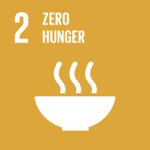Crescent Sustainability Initiatives
Partnerships for the Goals (SDG 17)
The B.S. Abdur Rahman Crescent Institute of Science and Technology is actively contributing to Sustainable Development Goal 2 (SDG 2), which aims to end hunger, achieve food security, improve nutrition, and promote sustainable agriculture by 2030. The institute’s initiatives align with the core objectives of SDG 2, focusing on sustainable agricultural practices, nutrition education, and resilience to food insecurity. Through various programs, the institute emphasizes the importance of ensuring that all individuals have reliable access to sufficient, safe, and nutritious food year-round, addressing the root causes of food insecurity and malnutrition.
One of the key efforts includes an awareness campaign aimed at minimizing food waste on campus, where students and staff are encouraged to adopt sustainable practices through informative signage. The institute’s canteen plays a vital role in promoting healthy and affordable food choices, serving as a social hub for the community. Additionally, the National Service Scheme (NSS) has engaged students in hands-on activities at local organic farms, empowering farmers with knowledge and skills in sustainable agriculture. These initiatives not only enhance food security within the community but also foster a culture of collaboration and innovation. By integrating education, practical experience, and community engagement, B.S. Abdur Rahman Crescent Institute of Science and Technology exemplifies a holistic approach to achieving Zero Hunger, ensuring that no one is left behind in the journey toward a sustainable future.
A. Advancing Towards Zero Hunger: Sustainable Food Practices at B.S. Abdur Rahman Crescent Institute of Science and Technology
Zero Hunger, as outlined in Sustainable Development Goal (SDG) 2, reflects a global commitment to eradicate hunger and secure access to nutritious food for all by 2030. The B.S. Abdur Rahman Crescent Institute of Science and Technology aligns its initiatives with this vision, focusing on various indicators (2.3.1 to 2.3.5) that address sustainable agricultural practices, nutrition education, and resilience to food insecurity.
At the heart of the institute’s efforts is an awareness campaign aimed at minimizing food waste. Recognizing that food waste can occur at every stage of the supply chain—from production to consumption—the institution has taken proactive measures. Through informative signage and notice boards, students and staff are encouraged to adopt practices that prevent excess waste, contributing to a more sustainable food system on campus.

Figure XVII (3.2) – 1 : BSA Crescent Canteen – Promoting Awareness about Food Waste and encouraging Sustainable Eating Practices
The institute’s canteen plays a vital role in promoting sustainable, healthy, and affordable food choices. With its spacious and well-furnished environment, the canteen serves delicious and nutritious meals, creating a social hub for students and staff. Additionally, it houses kiosks offering fresh juices and milkshakes, further enhancing the array of healthy dining options. A mobile canteen operates throughout the campus, with a dedicated canteen for first-year students to meet their needs. This commitment to providing accessible and nutritious food enhances the overall well-being of students while fostering an inclusive culture.
B.S. Abdur Rahman Crescent Institute of Science and Technology exemplifies a holistic approach to achieving Zero Hunger. By raising awareness about food waste, offering diverse healthy options, and ensuring accessibility, the institute is making strides toward aligning its practices with the Sustainable Development Goals, ultimately fostering a sustainable future where no student is left behind in the journey towards food security.
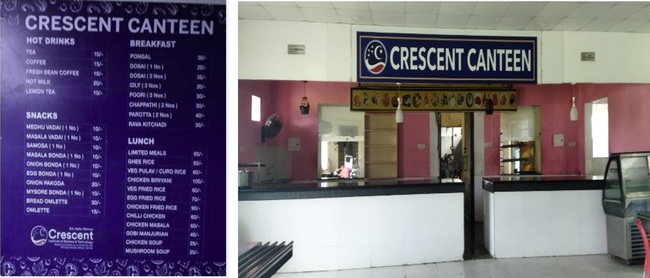
Figure XVII (3.2) – 2 : BSA Crescent Canteen – Sustainable, Healthy and Affordable Food Choices On Campus
B. Empowering Local Farmers: Knowledge and Skills in Sustainable Agriculture
On February 24, 2023, the National Service Scheme (NSS) of B.S. Abdur Rahman Crescent Institute of Science & Technology took significant steps towards promoting sustainable agricultural practices by supporting local farmers in Pushpagiri Village, Padappai. Recognizing the fundamental role of agriculture in societal survival, NSS volunteers, accompanied by three programme officers, visited the VRISHAM Organic Farm, where they actively engaged in various field activities.
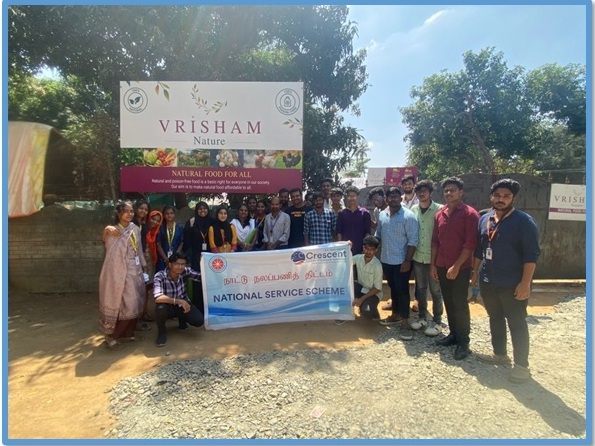
Figure XVII (3.2) – 3 : Engaging with Nature: NSS Volunteers at VRISHAM Organic Farm in Pushpagiri

Figure XVII (3.2) – 4 : Supporting Local Farmers in Pushpagiri Village, Padappai
At the farm, which is dedicated to cultivating diverse organic vegetables and greens, students participated in essential tasks such as weed removal and manure application in the fields. This hands-on experience not only assisted the farmers but also enriched the students’ understanding of sustainable agriculture. By providing access to knowledge and practical skills, the project fosters a culture of collaboration and innovation, empowering local farmers and enhancing food security in the community.
C. Promoting Health: Food Safety Awareness Program by B.S. Abdur Rahman Crescent Institute and the Tamil Nadu Food Safety Department”
In a significant initiative to enhance food safety knowledge and practices, the School of Life Sciences at B.S. Abdur Rahman Crescent Institute of Science and Technology, in collaboration with the Tamil Nadu Food Safety Department, has launched a Food Safety Awareness Program. This event aims to educate students on the importance of food safety, hygiene, and nutrition, adhering to the principles of Sustainable Development Goal 2 (SDG 2), which seeks to end hunger and improve nutrition globally.
The program, held at the Town Panchayat office in Madambakkam, Kancheepuram District on 13.06.2023, featured esteemed guest speaker Dr. T. Anuradha, the District Designated Officer for Kancheepuram, who highlighted the critical role of safe food practices in ensuring public health. Under the guidance of Dr. S. Hemalatha, Professor and Dean of the School of Life Sciences, along with coordinators Dr. I. Faridha Begum and Dr. S. Ranjani, the event fostered an interactive learning environment. Students engaged in discussions about food safety regulations, proper food handling techniques, and the nutritional value of food. This initiative not only empowers students with essential knowledge but also promotes a culture of health and safety within the community, contributing to a sustainable future where everyone has access to safe and nutritious food.
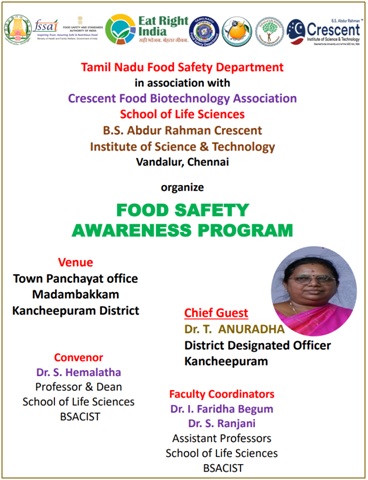
Figure XVII (3.2) – 5 : Brochure for the Food Safety Awareness Program
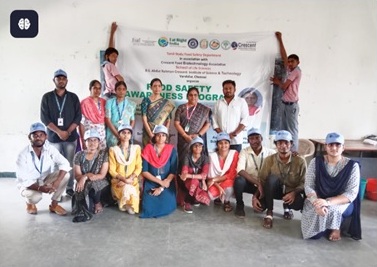
Figure XVII (3.2) – 6 : BSACIST Students Participation
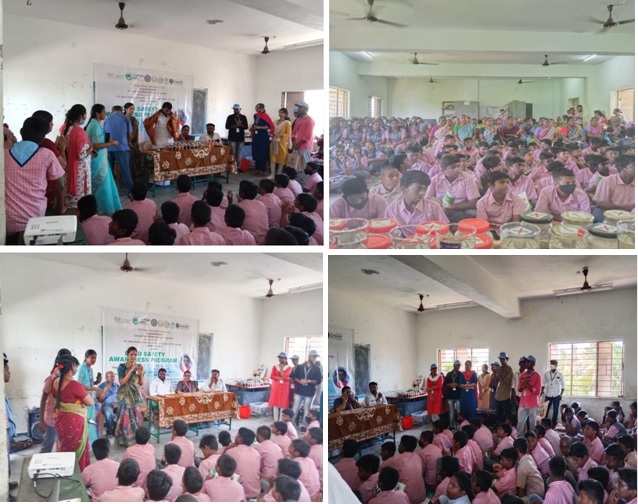
Figure XVII (3.2) – 7 : Nourishing Futures: Inspiring Food Safety Awareness Among Youth
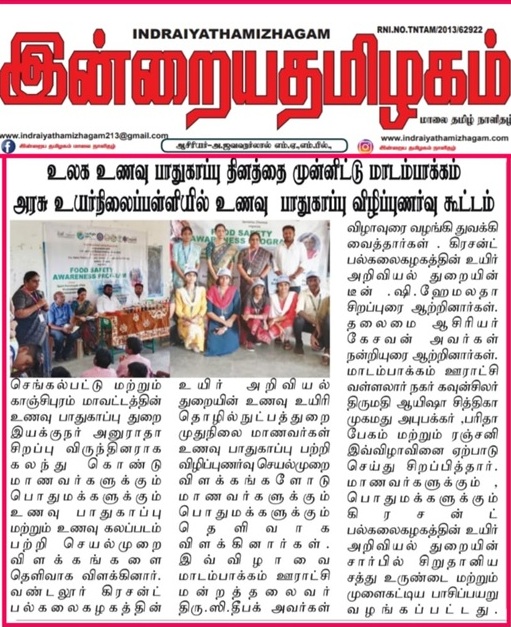
Figure XVII (3.2) – 7 : Spreading Awareness: Students and Officials Unite for Food Safety Education
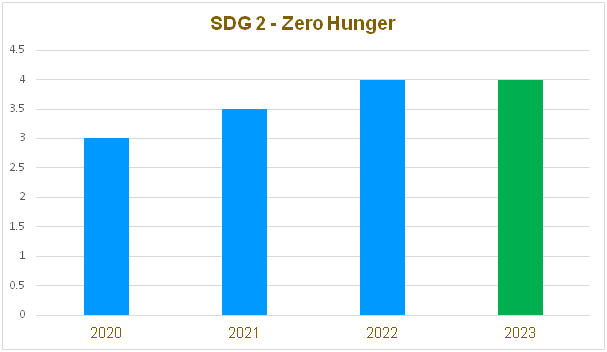
Rubrics for SDG 2: Zero Hunger
| 4 to 5 | There is significant progress in effective implementation compared to the previous year |
| 3 to 4 | The necessary processes/activities (Food waste tracking, nutritious and affordable food, food security) have been implemented |
| 2 to 3 | There is an explicit plan to address the ‘Zero Hunger’ and necessitated processes have been initiated |
| 1 to 2 | There is an understanding and willingness to contribute effectively for achieving the UN targets of SDG 2 |
| 0 to 1 | There is no/partial willingness and plan to contribute for achieving the UN targets of SDG 2 Zero Hunger |
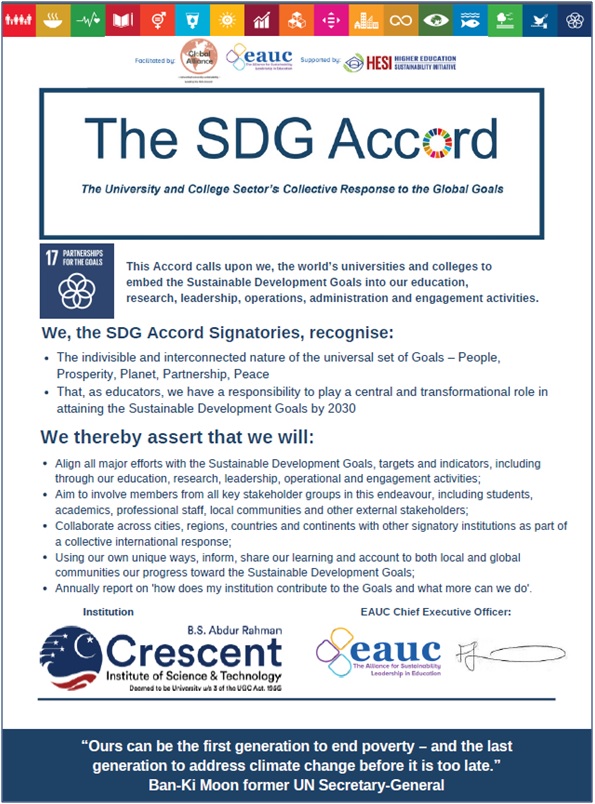
Please find the Report: SDG ACCORD REPORT


